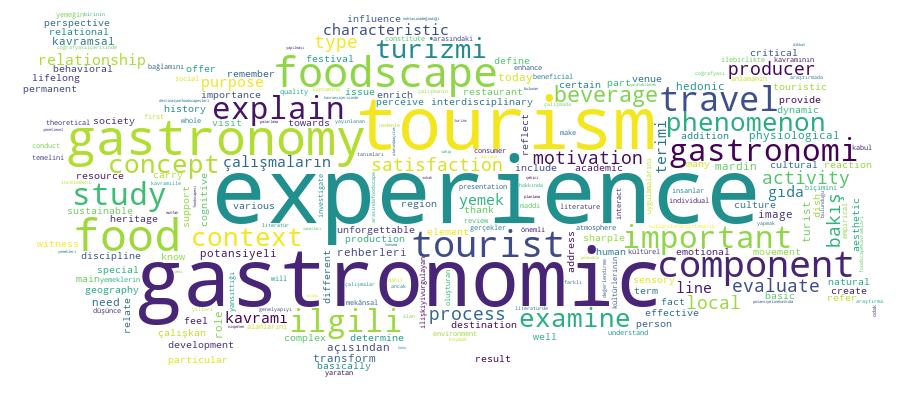Yılmaz, Emircan
Loading...

Profile URL
Name Variants
Job Title
Öğr. Gör.
Email Address
Main Affiliation
Department of Gastronomy and Culinary Arts / Gastronomi ve Mutfak Sanatları Bölümü
Status
Current Staff
Website
ORCID ID
Scopus Author ID
Turkish CoHE Profile ID
Google Scholar ID
WoS Researcher ID
Sustainable Development Goals
17
PARTNERSHIPS FOR THE GOALS

0
Research Products
2
ZERO HUNGER

0
Research Products
5
GENDER EQUALITY

0
Research Products
6
CLEAN WATER AND SANITATION

0
Research Products
13
CLIMATE ACTION

0
Research Products
10
REDUCED INEQUALITIES

0
Research Products
16
PEACE, JUSTICE AND STRONG INSTITUTIONS

0
Research Products
8
DECENT WORK AND ECONOMIC GROWTH

1
Research Products
15
LIFE ON LAND

0
Research Products
3
GOOD HEALTH AND WELL-BEING

0
Research Products
9
INDUSTRY, INNOVATION AND INFRASTRUCTURE

0
Research Products
14
LIFE BELOW WATER

0
Research Products
4
QUALITY EDUCATION

0
Research Products
1
NO POVERTY

0
Research Products
7
AFFORDABLE AND CLEAN ENERGY

0
Research Products
11
SUSTAINABLE CITIES AND COMMUNITIES

0
Research Products
12
RESPONSIBLE CONSUMPTION AND PRODUCTION

1
Research Products

This researcher does not have a Scopus ID.

This researcher does not have a WoS ID.

Scholarly Output
4
Articles
0
Views / Downloads
56/749
Supervised MSc Theses
0
Supervised PhD Theses
0
WoS Citation Count
0
Scopus Citation Count
0
WoS h-index
0
Scopus h-index
0
Patents
0
Projects
0
WoS Citations per Publication
0.00
Scopus Citations per Publication
0.00
Open Access Source
4
Supervised Theses
0
Google Analytics Visitor Traffic
| Journal | Count |
|---|---|
| Global Concepts in Gastronomy | 2 |
| Gastronomi Alanında Tematik Araştırmalar I | 1 |
| VI. International Gastronomy Tourism Studies Congress | 1 |
Current Page: 1 / 1
Competency Cloud


